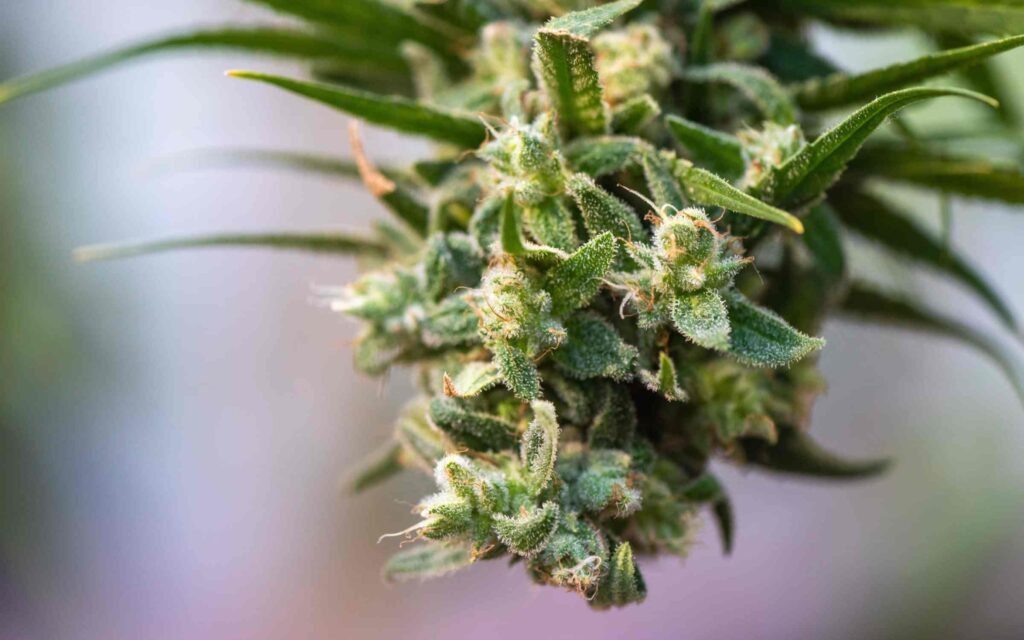Cannabis regulators in Minnesota have destroyed cannabis products with a value of nearly $300,000, according to a report in local media. The cannabis products, which were seized from 58 businesses that had been selling them as THCA hemp flower, were destroyed after an agreement between state agencies allowed medical marijuana regulators to enforce a ban on the popular products.
Minnesota legalized adult-use cannabis last year, although regulated sales of recreational weed are not expected to begin until early next year. Many retailers, however, have been selling cannabis marketed as hemp flower under a supposed loophole in the law that some say made sales of hemp rich in THC legal under federal law.
The Minnesota Office of Medical Cannabis was given temporary jurisdiction over hemp-derived products but not raw hemp flower under legislation passed in 2022. The law covered low-THC products including gummies and beverages, but not raw hemp flower. The new Office of Cannabis Management will regulate raw cannabis flower once businesses are licensed under last year’s recreational marijuana legalization law. Until then, however, hemp flower was left in a legal gray area.
This regulatory gap led many retailers to offer hemp flower products with THCA levels above 0.3% by weight, the level of delta-9 THC allowed in a crop for it to be considered legal hemp under federal law. Other businesses that refused to take advantage of the loophole and did not sell high-THC hemp flower were left at a competitive disadvantage.
Under an agreement by state agencies, medical cannabis inspectors were deputized by the Office of Cannabis Management to enforce the ban on cannabis flower sales. With the agreement in place, inspectors have been able to seize raw cannabis flower products that exceed 0.3% in total THC, which includes Delta-9 THCA and THCA, a cannabinoid that is converted to delta-9 THC when heated through a process known as decarboxylation.
Since the agreement went into effect in March, inspectors have been reviewing test results of hemp flower products to ensure they do not exceed 0.3% total THC. Hemp flower products with total THC levels that exceed the 0.3% limit on total THC have been confiscated.
More Than 12,000 Products Destroyed
Last week, the Office of Cannabis Management revealed that a total of 12,094 units of cannabis flower products had been seized and destroyed, including pre-rolled joints and bags and jars of cannabis flower with an estimated value of $278,000. The products had been seized from 58 businesses across Minnesota and represented approximately 73 pounds of raw cannabis flower.
An enforcement notice given to shop operators when cannabis flower products were seized threatened fines “in excess of $1 million.” However, the Office of Cannabis Management reported that no citations were issued and no fines were assessed when the products were confiscated.
David Mendolia, the owner of St. Paul Cannabis, is one of the hemp business owners who complied with the spirit of the law and declined to carry cannabis flower rich in THCA. He said he is happy that enforcement has begun but wondered why no citations have been issued to retailers selling hemp flower.
“The places that have been doing it have been reported by those who are better actors over and over and over and over,” Mendolia told MinnPost.
Legislation signed into law by Minnesota Governor Tim Walz in May will combine the Office of Cannabis Management with the Office of Medical Cannabis next month. The newly combined agency will also have jurisdiction over hemp flower, making the current interagency regulatory agreement unnecessary.
The Drug Enforcement Administration also tightened the loophole in the regulation of hemp flower with a legal decision issued last month to an attorney who asked for clarification on the issue. Under the DEA guidance, high-THCA hemp flower is federally illegal marijuana, not legal hemp.
“The ‘decarboxylation’ process converts Delta-9 THCA to Delta-9 THC,” Terrance Boos, the DEA’s chief of drug and chemical evaluation section, wrote in a letter to Washington, D.C., attorney Shane Pennington. “Thus, for the purposes of enforcing the hemp definition, the delta-9-THC level must account for any delta-9-THCA in a substance. Accordingly, cannabis-derived THCA does not meet the definition of hemp under the (Controlled Substances Act) because upon conversion for identification purposes as required by Congress, it is equivalent to delta-9-THC.”
H/T: hightimes.com



